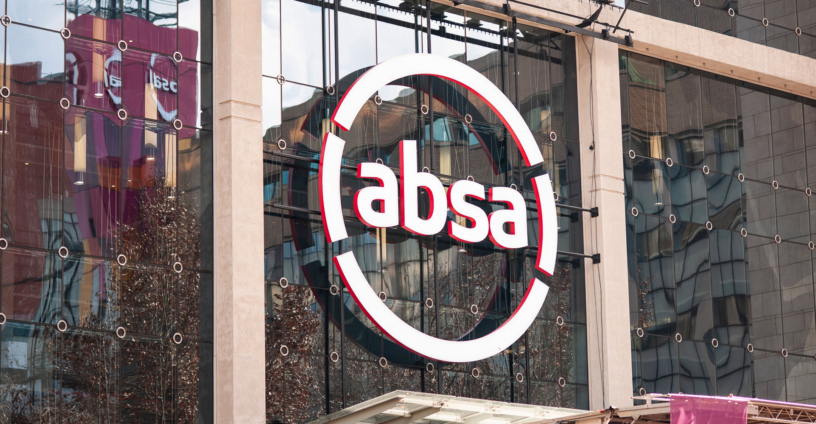Absa Group Ltd., one of Africa’s largest financial services providers, reported an increase in interim earnings and resumed dividend payments as the economic effects of the pandemic eased in the first half of 2021 compared with the same period a year earlier.
Group headline earnings grew five-fold to R8.6 billion, higher than pre-pandemic levels, supported by resilient pre-provision profit growth and a significant decline in impairments.
While earnings increased strongly, the improvement is off a low base a year earlier. Absa generates most of its income from its operations in South Africa.
“These results are testimony to the decisions that we took during the crisis around supporting our customers and taking a cautious approach to preserving capital and liquidity,” said Jason Quinn, Absa Interim Group Chief Executive.
The Group further strengthened its capital reserves during the period and maintained a strong liquidity position in the first half.
“Pleasingly, our headline earnings exceeded pre-Covid levels, and our common equity tier 1 capital ratio strengthened further to the top end of our target range,” said Punki Modise, Absa Group Interim Financial Director.
“The Group’s balance sheet remains resilient, and returns are now above the cost of equity.”
The recovery was broad-based as all business units reported strong growth from a low base in the prior year.
Retail and Business Banking (RBB), which generates most of the Group’s income, grew headline earnings eight-fold to R4.2 billion.
The benefit of a lower impairment charge was partially eroded by a 15% decline in pre-provision profit, given high claims and reserving in the life insurance business and customer-centric fee reductions.
RBB has invested heavily in digital and has made considerable progress in this area, including launching Apple Pay recently.
Corporate and Investment Banking (CIB)’s headline earnings more than doubled to R4 billion, driven by solid growth across the franchise, most notably in the Global Markets business and the Investment Bank. This helped to offset the low credit appetite from corporate clients.
After an internal and external review, the Group refined its operating model found that the Group structure was sub-optimal relative to its growth ambitions and the scale of the opportunity across the continent.
The major reporting units, RBB and CIB, will be accountable for their product lines across the continent, complemented by a strong, focused and lean ARO central capability and fully enabled country leadership teams.
Absa continued to play a role in society this year, building on last year’s substantial efforts to support customers, staff, communities and stakeholders in difficult times.
“Absa’s response to the pandemic and more recent incidents in South Africa has continued to be comprehensive, compassionate and reflective of the best of Absa’s values,” said Quinn.
In February, Absa announced R500 million of pricing relief for customers in South Africa and reinstated itsSiyasizana payment relief programme in August to assist retail customers (individuals) with existing credit facilities after they were impacted by unrest and looting in July.
Absa extended tailored credit solutions to business banking customers and made donations totalling R12.5 million to assist with immediate needs such as food relief and infrastructure restoration in affected areas.
Absa made significant progress in many key areas during the reporting period, including in sustainability.
In March, Absa published its first Task Force on Climate-related Financial Disclosures (TCFD) report, and it was the first South African bank to announce sustainable finance targets.
The Group aims to finance or arrange more than R100 billion for environment, social and governance-related projects by 2025.
Outlook
Absa foresees many risks to the Group’s growth forecasts in the remainder of the year and recognizes that the impact of COVID-19 remains a significant uncertainty.
Absa currently expects the South African economy to grow 4% this year from last year’s 7% decline, a slightly improved outlook compared with the 3% growth forecast in March.
“We are now confident, in hindsight, and considering the improvements in our financial momentum, that most of the key strategic calls made in 2018 were good decisions, which have been delivering against and which and remain very relevant today,” said Quinn.
“It’s also clear that many opportunities still remain, and the management team has a strong sense of urgency around re-anchoring and refreshing our strategy against the latest market context and executing against our priorities, including making further and deliberate progress on our culture journey.”
Latest Stories
-
If religion was a factor, I would’ve stepped aside – Dr Bawumia warns against tribal politics in NPP
25 minutes -
Okada rider survives brutal machete attack in Boinso, suspect arrested
29 minutes -
Photos: Asantehene graces son’s graduation at DPS International
2 hours -
Deputy Works and Housing Minister visits Ecobank-JoyNews Habitat Fair Clinic
3 hours -
Abdul Bashiru Hussein: The unseen spark lighting up Ghana’s football future
3 hours -
2025 FIFA Club World Cup: Is European supremacy a myth?
3 hours -
Brazil express interest in hosting 2029 FIFA Club World Cup
3 hours -
TCL hosts West Africa Regional launch in Accra, showcasing innovation and strengthening partnerships
3 hours -
Lecturer advocates mandatory teaching and military training for National Service Personnel
3 hours -
Hundreds of kids and coaches undergo Tennis training in Accra
3 hours -
‘We’ll always be available’ – Roger Smith commits to long-term support for Ghana Tennis
3 hours -
Ghana has enough fuel to last over 2 months – NPA boss
4 hours -
2 dead, three injured in building collapse at Kotokuraba’s London Bridge area
4 hours -
‘It is exciting’ -Tennis star Katrina Adams poised for clinic in Ghana
4 hours -
Nigeria: Five die as bomb explosion rocks Kano
4 hours

